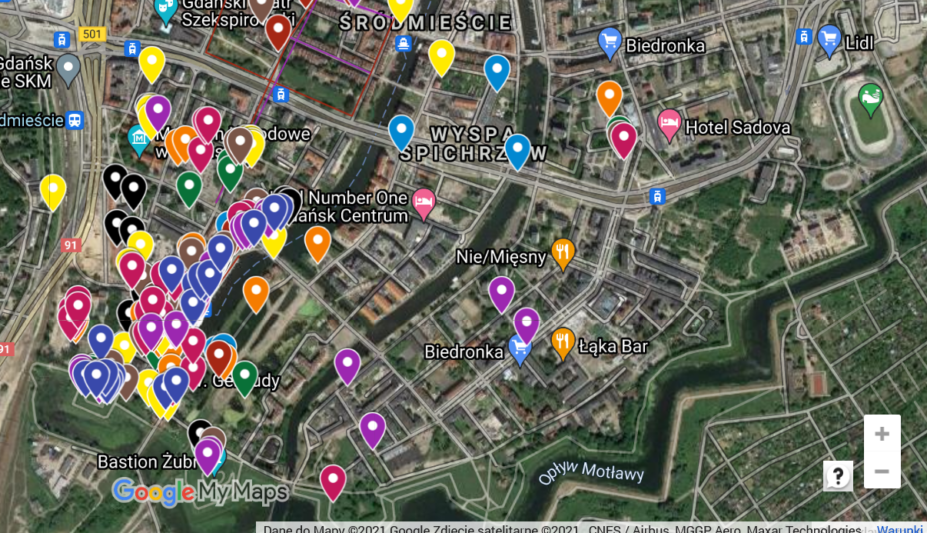Back to tools & methods
 Tools and methods
Tools and methods
- Cultural planning phase Mapping
- Purpose Discovering important places, analysing everyday life, getting to know the relationship with the place
- Participants: Residents, experts, various age groups
- Number of participants: 10–100
- Author
UCP team (Trevor Davies)
Tools and methods
Map of emotions
When it is useful
Part of cultural mapping is getting to know the relationship of local residents with specific places in their neighbourhood. It is through memories, experiences and emotions that we develop a bond with the city. One method to discover these aspects of neighbourhood life is to use surveys in the form of maps. Such a map can be printed or virtual (using Google Maps or virtual boards such as Miro). Remember that not all survey participants will be comfortable using maps and some will need your help. The points, routes and areas marked on the maps will help you find important places in the neighbourhood that require attention in your project. Gdańsk map of emotions

Step by step instruction
- Find a map of the neighbourhood, detailed enough and legible at the same time, so that you can easily find the local landmarks.
- If you are going to use a virtual map, place it in the relevant tool together with the instructions. You can use the map in workshops (also online) or as an individually completed questionnaire – in this case you will need a surveying software.
- You can use the printed version of the map during meetings with residents, to survey passers-by (it can be the most valuable method) or leave them for completion in local cafés, libraries and other places where locals spend a lot of time.
- Ask survey participants to mark three places on the maps: • With which they have memories • Which reflect the neighbourhood’s atmosphere • Which should be preserved • Which should be destroyed • Which they would like to see, but are not able to • Which they like to visit • Where they meet other residents • Where they like to walk • Which are needed • From which they have their favourite views
- The superimposed, collected individual maps will form a map of emotions of the neighbourhood.

